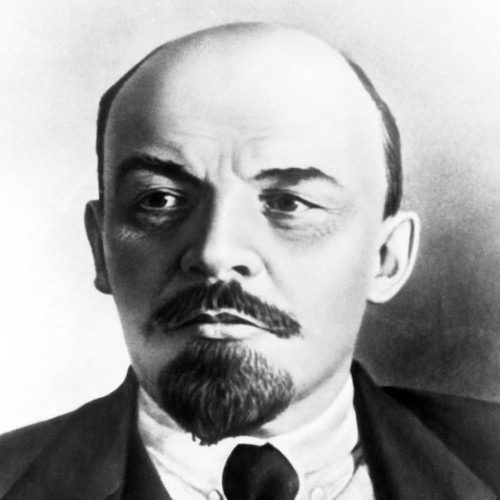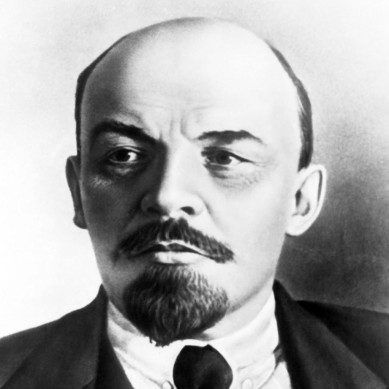Life And People
On Visiting the House Lenin Once Lived In -By Owei Lakemfa


Vladimir Ilyich Ulyanov (Lenin)
I was at the Baden International Business School (BIBS) Switzerland from August 23-29 as a Resource Person. My presentation was on “Labour Unions and their Future in the Energy Industry.” In this I posited that, “So fundamental had electricity become at the turn of the 20th Century, that it was one of the three reasons for the October 1917 Russian Revolution; the electrification of the country, under what became known as the National Economic Programme (NEP). The other two aims were to pull the country out of the First World War and provide food for the starving populace.
In Zurich, the professor at BIBS reminded me that I had mentioned the Russian revolution in my presentation, and that he knew the house Lenin had lived in. I was excited because it was from that house, ninety eight years ago, that the leader of the revolution, Vladimir Ilyich Ulyanov, better known as Lenin, had travelled back to Russia to carry out one of the most famous revolutions in human history. He had adopted the sobriquet of ‘Lenin’, the name of the small river in his home town, to escape detection by the Czarist secret police, just as many of his comrades did. The name had stuck, just as the name Stalin, which was the sobriquet of his successor in office, Joseph Vissarionovich Djugashvili.
The one story building, with shops on the ground floor, is in the old section of Zurich. In one of the rooms, in this nondescript house, Lenin lived with his wife, Nadia Krupskaya. I was disappointed. Not because I expected a bigger or better house. No, it must have been a good one for them because the couple were unemployed refugees who could hardly make ends meet. My displeasure was based on the fact that such a famous house has not been preserved for tourism. This is shocking, since Switzerland is a country that finds ingenious ways of making money.
Just some metres away is the Cathedral of Felix and Regular, also known as the Grossmuster (big) Cathedral associated with the memory of protestant pastor, Zwingli. So dominant was he that Zurich was at a time referred to as the City of Zwingli. The church has a pent house from which much of Zurich can be seen. It is used for tourism and you pay just to climb the long narrow stairs and view the city from its balconies. If such a place is preserved for tourism, why not the house a famous man once lived in?
I wondered whether it was an attempt to dampen the enthusiasm of socialists and discourage them from visiting a place that should otherwise be famous. Could it be an attempt to ensure that the ideas of Lenin, which are considered dangerous to the capitalist system, are not spread any further? It could also be the attitude of Switzerland to a man who, about a century ago, felt that country was so wedded to material things, that it would be quite difficult to arouse its social conscience. Krupskaya in agreeing with her husband had written that “Switzerland never had a strong working class; it is mainly a country of health resorts, a small country living off the crumbs of the powerful capitalist countries”. So could this also be a snub to that famous couple who should have been grateful that Switzerland gave them political refuge?

The only indication on the building that one of the most famous men in history once lived there was small signboard nailed to the wall, between an upper and lower window, which reads in German: “Here was the residence of Lenin from 21st February 1916 – 2nd April, 1917. Lenin was the leader of the Russian Revolution.” The signboard is like a reluctant acknowledgement of history. I stood in front of the house, a silent witness to what should be an historical monument. I walked the stone-paved street Lenin would have walked, and in the doorway he had passed many times as he wrote one of his most famous books, Imperialism: the Highest Stage of Capitalism. In it, he espoused his thoughts on one of the most infamous European wars, which became known as the First World War. He had advocated that socialists, rather than back their individual countries, should transform that war into one against the capitalist system.
When Lenin fled Russia, he did not have Zurich in mind. He lived in the capital, Bern. Krupskaya explained why they moved. “In the middle of February, Ilyich had work to do in the libraries of Zurich, and we went there for a week or two, and then kept putting off our return day by day until, in the end, we stayed there for good; Zurich being a livelier place than Berne. There were a large number of revolutionary-minded young foreigners in Zurich, besides working-class elements; the Social-Democratic Party there was of a more Leftist tendency, and the petty-bourgeois spirit seemed to be less in evidence there.”
Lenin was convinced that a revolution by workers was inevitable, but saw himself and his comrades as some sort of Moses who may see the Promised Land, but never get there. On January 22, 1917 while addressing youths in Zurich, he told them “We of the older generation may not live to see the decisive battles of this coming revolution.” The month after, in a social upheaval, the Emperor of Russia, Nicholas II (Romanov) was overthrown, and Lenin decided to return home. In March, 1917, he wrote his Letters from Afar in Zurich, putting forward a programme of Peace, Bread and Freedom. The Germans, hoping to use Lenin to cause more confusion in Russia, and force it out of the war, in April, gave him passage through its territory. It was an act Germany was to regret.
Six months after he left Zurich, Lenin in an audacious move, rejected even by his close allies like Leon Trotsky, led armed workers and soldiers in a successful uprising, which heralded the Soviet Revolution. On seeing the house Lenin lived in Zurich, I began recalling the history of the Russian Revolution I read as a youth.

















